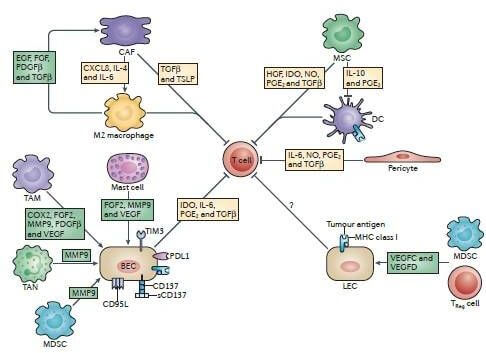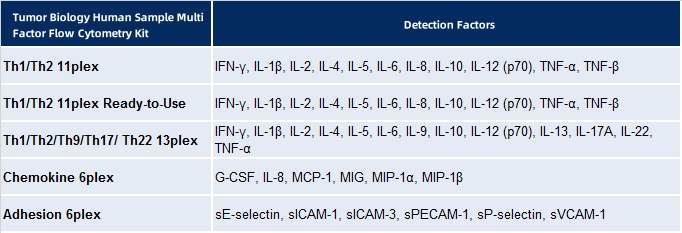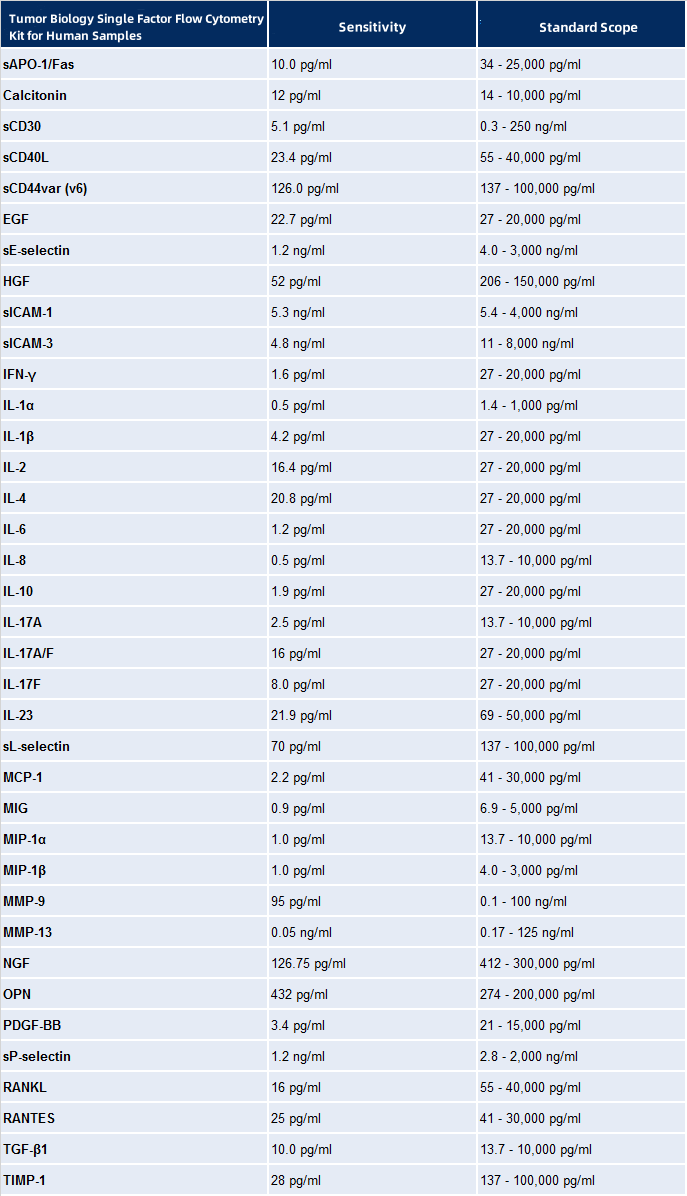Tumor Immunology Analysis Service
During the tumor formation process, cancer cells release various cytokines and growth factors into the surroundings and reprogram many other types of cells to establish a tumor microenvironment. As a result, tumor tissues almost always contain a large number of endothelial cells, fibroblasts, and infiltrating inflammatory cells, which in turn produce various cytokines. Tumor-derived VEGF acts on endothelial cells, promoting angiogenesis and tumor growth, invasion, and metastasis. At the tumor site, monocytes differentiate into tumor-associated macrophages capable of producing growth factors, proteases, angiogenesis mediators, cytokines such as TNF-α, IL-1, and IL-6, and chemokines such as CCL2 (MCP-1), CCL5 (RANTES). Chemokines like CXCL10 (IP-10) and CXCL9 may inhibit cancer development. Additionally, many adhesion molecules, such as ICAM-1, ICAM-3, VCAM-1, and selectins, are expressed by many different types of tumor cells and are often key factors in cancer metastasis.

Turley, SJ. et al. Nat Rev Immunol. 2015.
Figure 1. Tumor Immunology - Cytokine Detection by Flow Cytometry
MtoZ Biolabs uses flow cytometry to simultaneously quantify tumor-related cytokines and proteins, offering higher sensitivity and a broader detection range. The table below lists the cytokines detectable in human samples, and MtoZ Biolabs also provides detection for other species and free consultation is available!
Tumor Immunology - Cytokine Detection by Flow Cytometry

Table 1. Tumor Biology Multi Factor Flow Cytometry Kit for Human Samples
 Table 2. Tumor Biology Single Factor Flow Cytometry Kit for Human Samples
Table 2. Tumor Biology Single Factor Flow Cytometry Kit for Human Samples
Sample Submission Requirements
1. Requires only 25 µL of Sample, Compared to 50 µL or 100 µL of Sample for ELISA Tests
2. Suitable for Use with Serum, Plasma, Cell Culture Supernatants, and Other Body Fluids
3. Samples of Body Fluids Should be Stored at -80°C and transported on Dry Ice
Deliverables
1. Experimental Procedures
2. Raw Data (Fluorescence Emission Spectra)
3. Comprehensive Technical Report
3. Detailed Quantification of Each Indicator (Excel Spreadsheet)
How to order?







